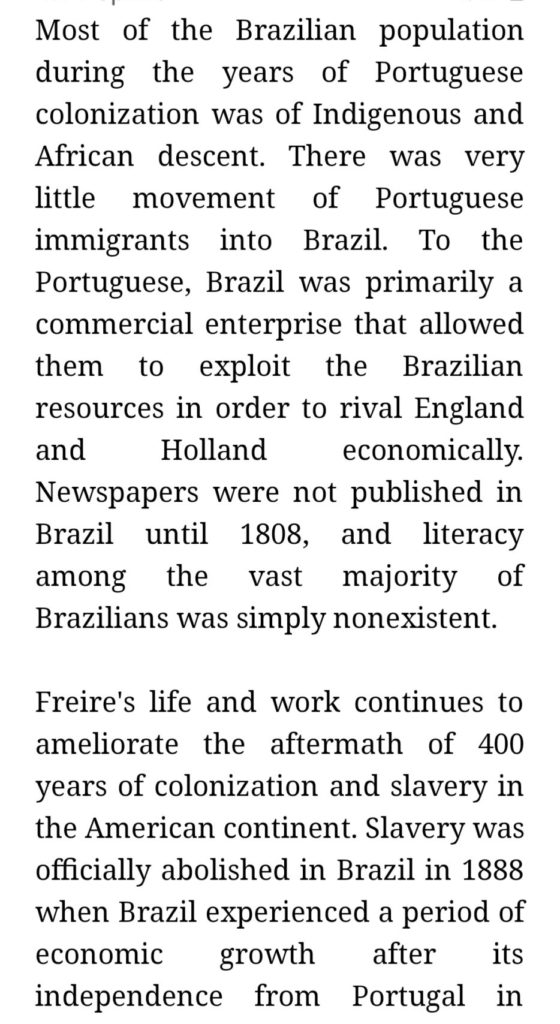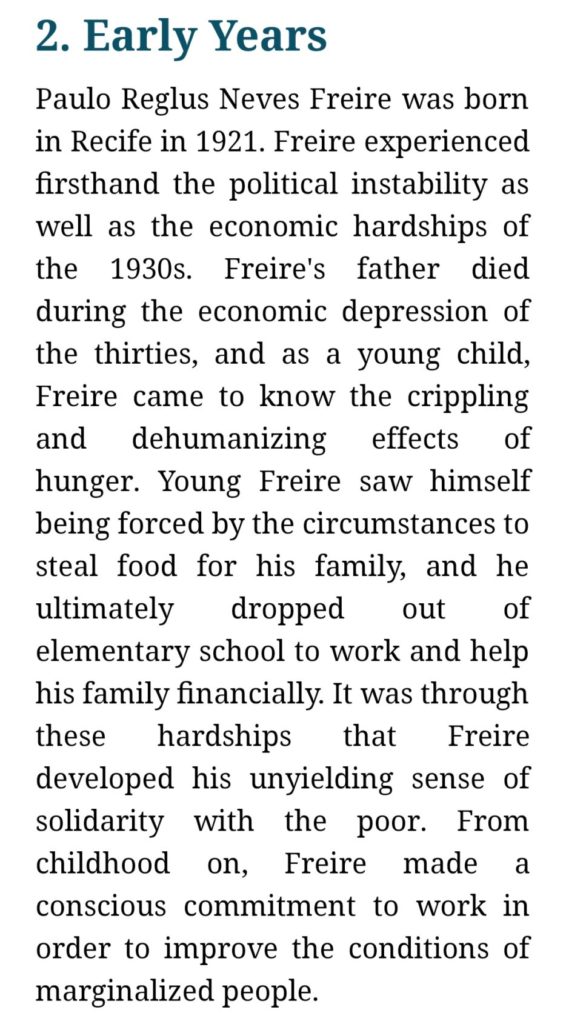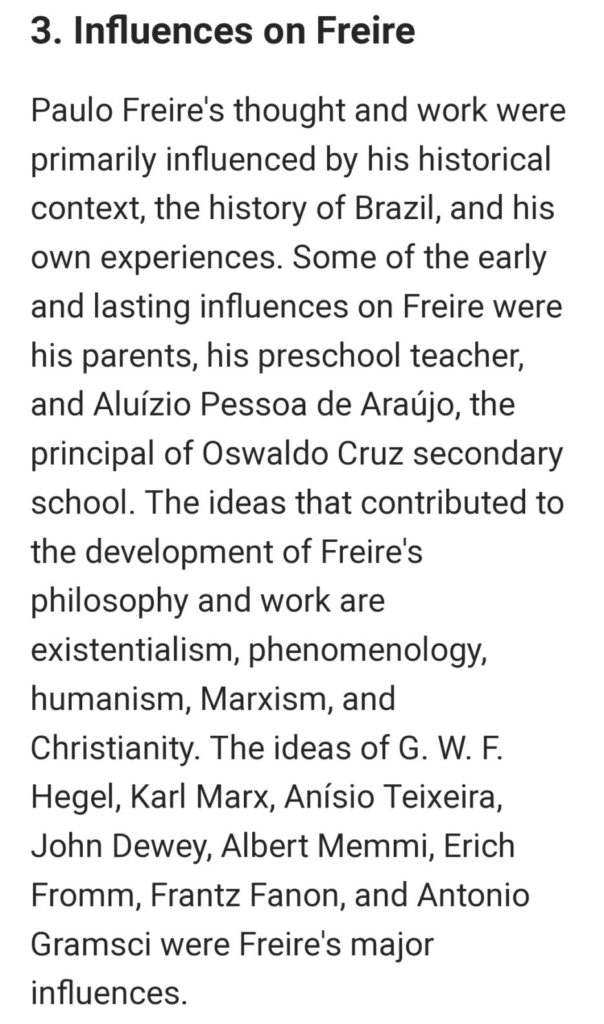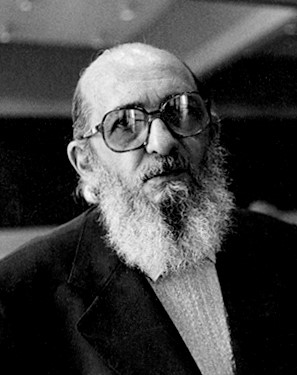Pursuant to the prior week’s theme of CONTEXT it’s important to establish context for this week’s framework — THEORY — in regard to the critical pedagogues, such as Paolo Freire and bell hooks, who we’re reading. Freire wrote and tirelessly advocated for “the oppressed” and toward pedagogies for the oppressed and for freedom in colonized Brazil. I’d describe Freire as a META-theorist. Here are screen shots from the Internet Encyclopedia of Philosophy (A Peer-Reviewed Academic Resource) about Brazil’s history and Freire’s early career:


The first time I read Freire was three years ago for ITP Core I at the GC (now called Digital Pedagogy I) as a non-matriculated student. I approached it with the openness that often accompanies auditing a course and I found him a bit hard to follow. This time, having obtained the ITP Certificate and two years in to the MA in DH at the GC, and also teaching Eng 101 and 201 at BMCC, I “get” him. I can now relate to Freire’s observation that “education is suffering from narration sickness.” (p. 71, Pedagogy of the Oppressed) This sentence from the opening paragraph of Chapter 2 continues as Freire further observes that “education thus becomes an act of depositing, in which the students are the depositories and the teacher is the depositor” (p. 72) thereby laying out his “‘banking’ concept of education” or what has come to be called the “banking model” of education.
Not wanting to suffer from ‘narration sickness’ nor embody the ‘banking model’ myself as I teach, I’m very interested in performative knowledge and I effort toward collaborating with my students wherever and whenever possible. For example, at BMCC the Eng 101 syllabus is a template written for instructors that we must use (a characteristic of the “banking model”) AND the content of the final exam and the instructions for administering the exam are “given”, i.e., dictated to us instructors (def. “banking model”!) So, I “humanized” these two aspects of my teaching by bringing in a guest speaker/colleague to talk with my Eng 101 class about the content of the final exam, which engaged my students in astonishing ways and which my colleague truly enjoyed. In Eng 201, we may write our own syllabus and we’re not required to give an in-class final exam. Therefore, I’ve decided to have the final exam be a final paper that my 201 students and I create together so that we can use the time to focus on their individual writing styles in their interest areas (in consultation with me).
While I’m not sure what I’m practicing in the classroom would be defined by purists as “critical pedagogy”, I aspire to it as “the antithesis to the banking model of education” (p. 24 Duncan-Andrade and Morrell, The Art of Critical Pedagogy) in my own practice of pedagogy. While my teaching may not yet rise to the level of “reading the word and world” (p. 27, Duncan-Andrade and Morrell, citing Freire & Macedo) I’m committed to praxis, “problem-posing education”, and “learning for freedom rather than learning to earn” because “a humanizing education that develops a critical literacy for students and teachers” (p. 27) is, in my opinion, the only way to go in our current culture. Furthermore, bell hooks’s “critical challenge” ethos is vital to this. In the Introduction to Teaching to Transgress, hooks talks about Freire’s great influence on her: “When I discovered the work of Brazilian thinker Paolo Freire, my first introduction to critical pedagogy, I found a mentor and a guide, someone who understood that learning could be liberatory.” (p. 6) While hooks admittedly adopts Freire’s “pedagogical paradigms” she also challenges his ideas. Therefore, it might be worth noting Friere’s influences in order to grasp an even broader context for hooks’s critique of Freire:

hooks also notes about her own trajectory: “Already deeply engaged with feminist thinking, I had no difficulty bringing that critique to Freire’s work.” (p. 6, Teaching to Transgress)
As my own particular academic interests and areas of scholarly inquiry include cultural studies, an area of overlap with the critical pedagogues such as Freire and hooks, I ask us all to consider:
What types of interactive assignments or supplements to course content might we develop and implement or are already using?
What is your critical pedagogy “dream” assigned work or in-class activity…?



